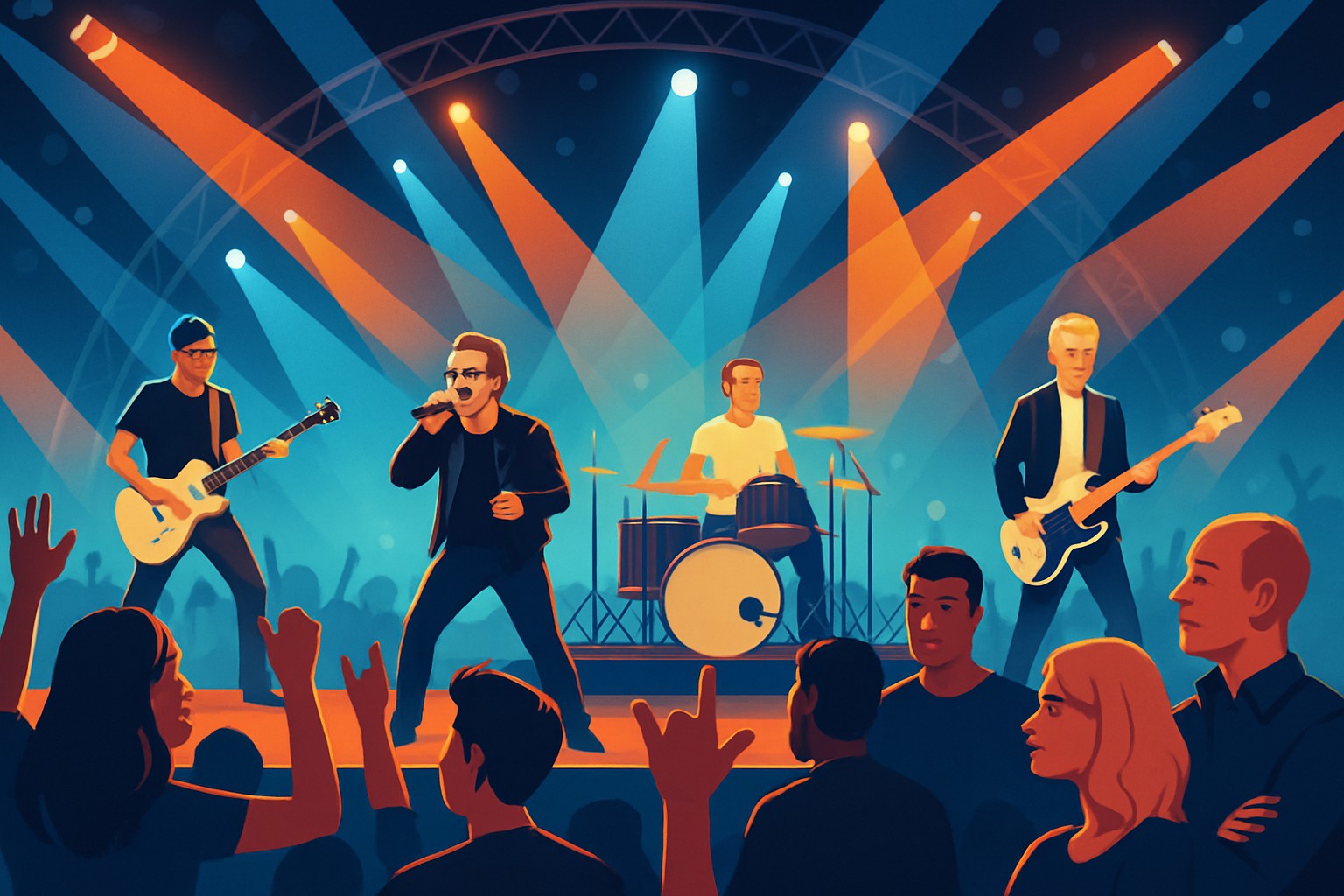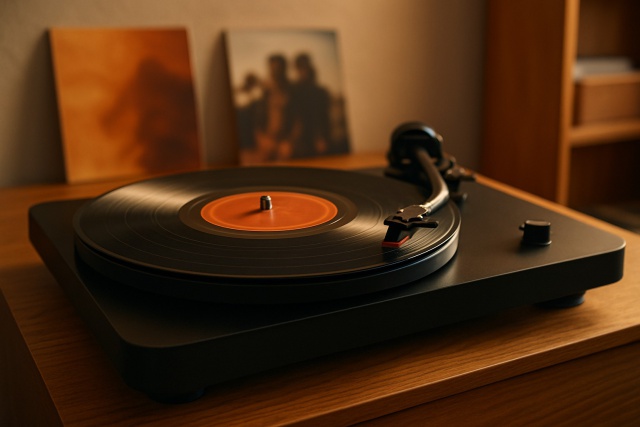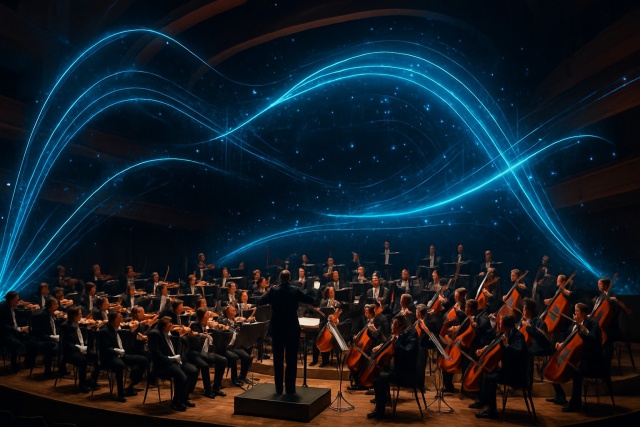Why Do People Hate U2 And What Drives That Feeling?

U2 is right up there with the most iconic and influential rock bands ever but despite their massive success they have also become one of the most polarizing acts in music history. This article dives into why many people feel anything from mild dislike to outright aversion toward U2 and explores the tangled mix of psychological, cultural and musical reasons that ignite these strong reactions.
Taking a Closer Look at What Makes U2 So Popular and Why Their Impact Still Resonates
Understanding why some people strongly dislike U2 begins with appreciating how successful and influential they have been. Since they first got together in Dublin in the late 1970s, U2 has carved out an unmistakable footprint in rock music with their unique sound and electrifying live shows. They also have a knack for staying relevant across multiple generations.
- U2 got their start back in 1976 in Dublin, bringing together Bono, The Edge, Adam Clayton and Larry Mullen Jr. into what quickly became a tight-knit crew.
- Albums like The Joshua Tree (1987) and Achtung Baby (1991) showcased the band’s evolution and won them heaps of critical acclaim.
- Their sound is a fascinating blend of post-punk punch with soaring melodies topped off by The Edge’s signature guitar delay effects that you can almost instantly recognize.
- U2 has crisscrossed the globe with their tours. None was bigger than the colossal 360° Tour that saw them fill gigantic stadiums, a real testament to their staying power.
- Beyond the music they’re known for their heart too, with Bono’s activism shining a bright spotlight on various humanitarian causes proving they’re about more than just the rock and roll.
Why Some People Just Cannot Stand or Even Really Dislike U2
U2 certainly commands a fair share of admiration yet they have also ruffled quite a few feathers along the way, with critics coming from all corners—whether it is their musical style or their bigger social stances.
- U2’s constant presence in the media and on the radio can sometimes wear listeners down and spark backlash. It’s like they’re everywhere you turn whether you like it or not.
- Some critics argue their music tends to circle back on itself and lacks the fresh innovation that other rock legends add to their work more often.
- Bono’s outspoken activism and larger-than-life public persona occasionally draw claims of self-righteous posturing. Some individuals just can’t help but roll their eyes.
- The band’s production choices and overall sound have at times felt too polished or formulaic. It seems they stick to a recipe tried and tested one too many times.
- Hardcore fans often accuse U2 of leaning too heavily into commercial success and suggest this focus chips away at their artistic authenticity, which is a sore spot for the die-hard crowd.
Widespread presence and overuse in media, popping up everywhere you look
Overexposure is often cited as the main culprit behind the backlash against U2. Since the 1980s, their music has been everywhere—on radio stations and TV shows and at award ceremonies. They appeared in commercials and had massive international tours. It’s no wonder people started feeling saturated. For many listeners, this constant barrage eventually turned admiration into weariness.
A topic that tends to stir up quite a bit of debate and soul-searching among artists and fans alike
U2’s earlier albums often catch a lot of well-deserved praise for their fresh sound and lasting impact but over the years some critics have whispered that their music has settled into a predictable groove. Fans and reviewers sometimes notice a creative slowdown because the band tends to lean on their familiar anthemic rock style with the same guitar effects that have become their signature and recurring themes. Compared to other rock bands from their era who dared to take bigger risks or dramatic transformations, U2’s gradual evolution might seem a bit tame.
Bono’s personality and those ever-persistent activism controversies
Bono's role as U2's frontman stretches beyond the music and dives into the choppy waters of outspoken global activism—a move that often divides audiences. Plenty of individuals tip their hats to his efforts tackling tough issues like poverty and AIDS but critics often call it attention-seeking or hypocritical. His celeb status sometimes rubs fans the wrong way, especially those who would rather see musicians stick to their tunes and avoid politics or the spotlight.
Commercialism and its broad, sometimes surprising acceptance
U2's massive commercial success with lucrative partnerships and seemingly endless radio airplay often sparks accusations that they have cashed in on their authenticity. Some critics argue their ties with big corporations and their polished sound have dulled the raw edge that die-hard rock fans hold dear.
The Psychological and Social Factors Behind U2's Surprisingly Divisive Reception
Beneath the surface of musical critique there’s a tangled web of psychological and social factors that steer how people form their opinions about U2. Emotional connections tug at the heartstrings and a sense of identity gives us something to hold onto. The need to belong to a like-minded group also shapes whether someone becomes a devoted fan or a firm rejector.
- The bandwagon effect and cultural backlash often cause some people to dismiss U2 just because they’re wildly popular. Sometimes being popular is almost a crime in the music world.
- Whether someone embraces or shuns U2 usually depends on the social circles or subcultures they’re part of and how those groups view the band.
- Media portrayals swing between casting U2 as beloved heroes or sellouts and play a huge part in shaping public chatter and fan debates.
- Psychological reactance flares up when people feel like U2 is everywhere in mainstream music. This prompts them to push back to stake out their own sense of independence.
How U2’s Career Moves Might’ve Played a Part in Some Less-Than-Positive Opinions
Key moments in U2's career have often set off fireworks, sparking strong reactions whether through bold projects or some downright debate-provoking marketing choices.
- The PopMart Tour in the late 1990s often came under fire for its over-the-top visuals with many feeling it leaned too heavily on style rather than substance.
- When How to Dismantle an Atomic Bomb dropped exclusively on Apple's iTunes Store in 2004, many saw it as a savvy commercial play rather than a purely artistic move.
- The 360° Tour's jaw-dropping scale and pricey tickets stirred talk about concert accessibility and the growing shadow of corporate influence in live music.
- Shifts in musical style on albums like No Line on the Horizon left some longtime fans scratching their heads, especially those craving the band’s classic sound.
- Bono’s occasional controversial quips have left their mark and complicated the band’s public image in ways that make you wince a bit.
The Challenges U2 Faces When Walking the Tightrope Between Commercial Success and Artistic Integrity
Navigating the music industry as a major global band really piles on the pressure for U2 to maintain their broad appeal without losing sight of their artistic vision. It’s a tricky tightrope walk that involves constant give and take between their fans, record labels and cultural trends that shift constantly.
- Record labels often push for albums that perform well commercially, which can sometimes put a damper on adventurous experimentation.
- Fans usually expect certain familiar sounds, which can clash with the band's desire to explore new creative directions.
- The rise of streaming has completely changed the game when it comes to how artists think about releasing and promoting their music.
- Trying to reach a wider audience can occasionally ruffle feathers among longtime fans who still prefer the band’s earlier style.
- Keeping up with ever-shifting musical trends requires a delicate balancing act between fresh ideas and staying true to their original vibe.
What Sparks Such Intense Feelings of Hatred? A Closer Look at the Psychology Behind It
Strong negative feelings about U2 often come from deeper cognitive and social psychological quirks. These include biases that steer how people interpret information about famous figures, emotional ties that are surprisingly stubborn and social dynamics that tend to amplify group opinions.
- Group dynamics within music fan cultures often spark intense loyalties and sharp divisions, with U2 somehow ending up as the symbolic 'other' that certain listeners love to rally against.
- Nostalgia mixed with a stubborn resistance to change tends to make it pretty tough for long-time fans to fully get behind U2’s newer sounds.
- Social proof and herd mentality usually crank up the volume on widespread dislike, as people naturally fall in line with whatever the dominant opinion is in their social circles.
- Nagging frustration over what feels like constant overexposure can quickly spiral into outright irritation, especially among those who prefer their tunes tucked away in alternative or underground music scenes.
"Music fandom isn’t just about the tunes; it’s deeply wrapped up in social identity and really shapes how people connect with one another. When a band like U2 rises to the top and becomes a household name, it almost always stirs up a mix of passionate support and a fair share of resistance. Fans find themselves wrestling with questions about identity, authenticity, and where they truly fit in the grand scheme." – Dr. Laura Thompson, Music Psychologist
Is the dislike really justified? Take an honest, no-nonsense look at the band’s strengths and weaknesses—because let’s face it, every group has its highs and lows.
U2 has impressive milestones they have hit over the years, along with the fair share of criticisms that come their way.
| Strengths | Criticisms |
|---|---|
| Remarkable longevity with a steady creative spark that keeps fans coming back | Occasionally pegged as running low on fresh musical ideas |
| Early albums that truly shook up the rock scene in a big way | Heavy airplay that might have worn out a few listeners |
| Ambitious and unforgettable live shows that stick with you long after | Commercial endorsements that some fans quietly wince at as selling out |
| A strong heart for social and humanitarian causes that shows real dedication | Bono’s activism, which, let’s be honest, can rub certain audiences the wrong way |
| Dependable songwriting packed with memorable hooks you just can’t shake | Production approach and sound some find a tad repetitive after a while |
Conclusion Peeling Back the Layers to Understand Why People Might Not Be Fans of U2
The question of why do people hate U2 springs from several factors like musical criticism, social identity, psychological influences and the band’s own choices over the years. Wrangling these elements helps us cut some slack and see the bigger picture more empathetically—whether we’re chatting about die-hard fans or harsh critics.
Questions & Answers
Is the dislike for U2's music mainly about their sound?
Some critics find their later music repetitive or formulaic but the dislike usually runs deeper than just the sound. Bono’s larger-than-life public persona and the band’s commercial image, along with the psychological reaction to their relentless media presence, all stir the pot. Honestly, this kind of overexposure can wear listeners down and lead to fatigue or even a bit of a backlash.
Why is Bono such a polarizing figure for the band?
Bono’s high-profile activism and outspoken style tend to split opinions dramatically. Many people admire his humanitarian efforts but just as many are put off, seeing it as self-righteous or sometimes hypocritical which leads to accusations of grandstanding. It’s a shame because this often overshadows the music and casts a shadow over the band’s image.
What specific career moves have amplified the criticism against U2?
There have been a few high-profile moves that didn’t go down well. The 2014 automatic download of Songs of Innocence on every iTunes device is a classic example seen by many as intrusive. Then there’s the commercial package with the PopMart tour and exclusive corporate deals which left many accusing them of selling out. It’s the kind of stuff that sticks in people’s craw.
Can a band be too successful for its own good?
In U2’s case, their enormous success and constant visibility have fueled some criticism. Psychological concepts like reactance suggest that when people feel a band is forced on them by mainstream culture, they push back hard to defend their own taste and independence. It’s almost like a natural human reflex.
Do U2's critics acknowledge their artistic achievements?
Absolutely. Many critics recognize U2’s important legacy and point to landmark albums like The Joshua Tree and their undeniable influence on rock music. The grumbling usually targets their later work and public image so you get a nuanced take where their earlier triumphs are respected but what they’re doing now gets more scrutiny.





